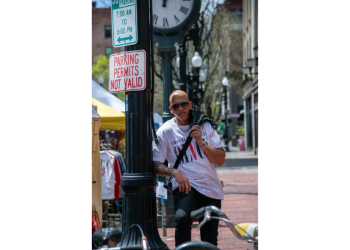The self-reported figures are not yet available from the Federal Election Commission. The Republican National Committee has said each candidate must have a minimum of 40,000 unique donors to their principal presidential campaign committee, with at least 200 unique donors per state or territory in 20-plus states and/or territories. They must also meet certain polling thresholds and sign a pledge to support the Republican nominee.
The memo said that Scott, a senator from South Carolina, had more than $21 million in cash on hand and that the $6.1 million he raised is money that can be used only during the primary campaign. The campaign indicated that most of the donations came in the first six weeks after he launched his campaign. Scott launched an exploratory committee in early April that allowed him to ramp up fundraising and pay for travel, and he and made his campaign official in late May.
The cash-on-hand figure includes money transferred from Scott’s Senate account. He transferred $22 million from that account at the start of his campaign.
“At the end of the day, candidates can post any number they want,” DeCasper wrote. “But the name of the game is how much actual cash you have on hand that’s available for use in the Republican primary.”
Former president Donald Trump, who is leading in the polls by a wide margin, raised more than $35 million in the second quarter for his official campaign and his separate leadership PAC, Save America, which he has used to pay some of his legal bills. Ron DeSantis, who is running a distant second behind Trump, raised $20 million in the six weeks following the official announcement of his run for president, his campaign said Thursday.
Never Back Down, the independent super PAC that is playing a major role in DeSantis’s effort, has raised $130 million since launching. Much of that money is left over from DeSantis’s gubernatorial reelection effort. In May, a Florida political committee that had been holding the extra money transferred $82.5 million to Never Back Down. One megadonor, Robert Bigelow, this spring said he had contributed more than $20 million of that total super PAC tally.
Reports detailing the amounts that the candidates raised and spent between April and June are due to the Federal Election Commission on Saturday. Super PACs can accept unlimited donations — unlike campaigns, which are subject to strict contribution caps — but they cannot coordinate their spending with the campaign and pay higher rates for TV advertising than candidates. Reports for many of those entities are not due to the FEC until the end of July.
So far Scott has struggled to crack double digits in national polls. He is running well behind Trump in public polls of the GOP race and trails DeSantis, who is consistently running second behind the former president. The senator from South Carolina is running on a more aspirational message than many of his rivals and emphasizing his Christian faith and personal story.
Upon launching his campaign, Scott took out a $6 million ad buy in New Hampshire and Iowa. He has also built a network of wealthy donors, including Oracle founder Larry Ellison.
























